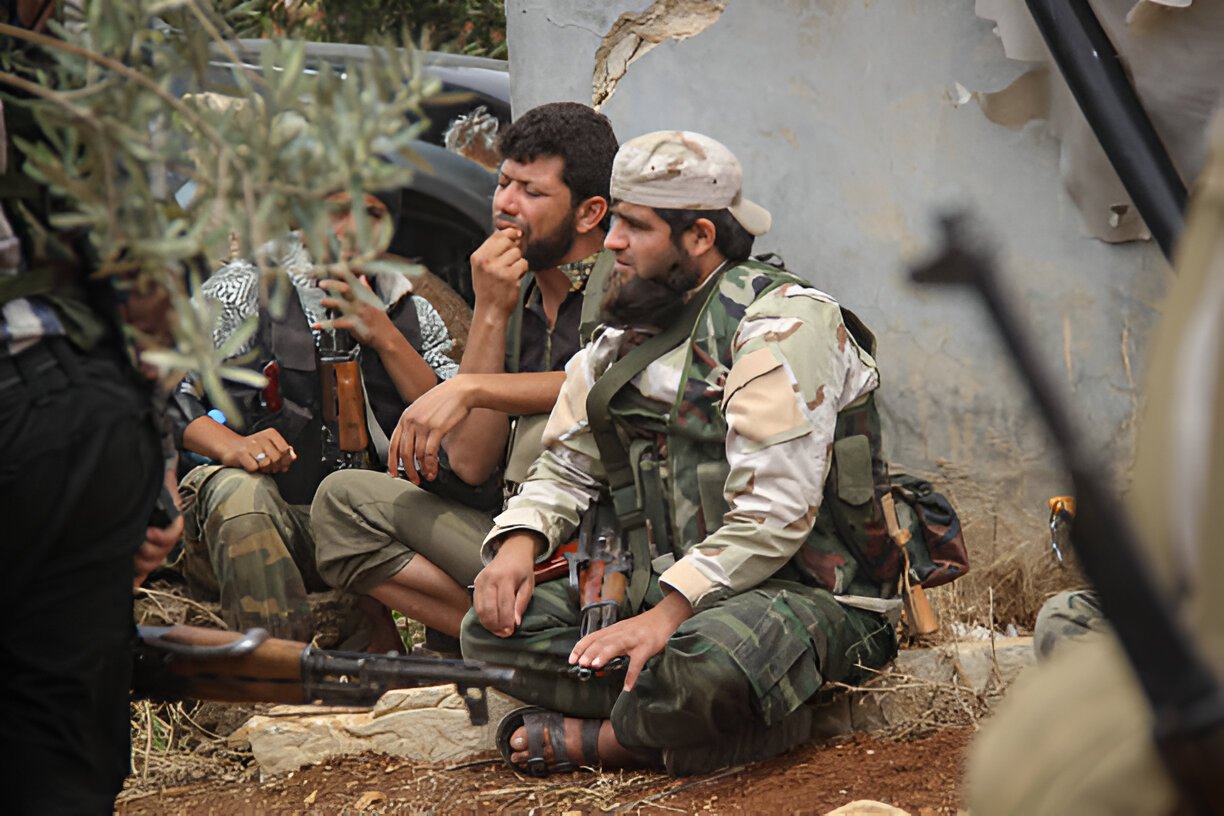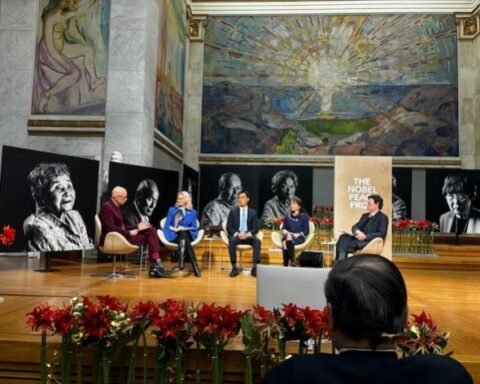“They arrived here worried about the Islamists,” according to one source, summarising the attitude of Arab foreign ministers who flew into Doha on Saturday night for urgent negotiations meant to prevent a collapse into anarchy and violence in Damascus.
The strong Islamist organization that spearheaded the rebels’ ascent to power announced in a matter of hours that they had arrived in the heart of the Syrian city.
“The capture of Damascus” was gleefully declared by Abu Mohammad al-Jowlani, the leader of Hayat Tahrir-al Shams. In an indication of his abrupt ascent to a far more important position in the country, he is now going by his true name, Ahmed al-Sharaa, instead of his alias.
He will undoubtedly be crucial in establishing Syria’s new order following the abrupt and shocking end of the Assad family’s fifty years of oppressive control. However, the head of a group that the UN and Western nations have banned is hardly the only important figure in Syria’s rapidly changing landscape.
“The story is not written yet,” warns Marie Forestier, the European Institute of Peace’s senior adviser on Syria. She and other knowledgeable observers who happened to be at the annual Doha Forum point out that the infiltration of the capital was carried out by another rebel cell, lately dubbed the Southern Operations room, which collaborated with city dwellers. Fighters from the former Free Syrian Army (FSA), which collaborated closely with Western powers at the onset of Syria’s 2011 rebellion, make up the majority of this force’s ranks.
Ms. Forestier says, “The game starts now,” referring to the beginning of this historic new chapter that is characterized by a flurry of street celebrations but also important inquiries about what will happen next.
The Islamist group Hayat Tahrir-al Shams (HTS) advanced with incredible speed and little opposition, which led to a rush by rebel forces in other parts of Syria and a rise in armed local groups eager to contribute in their own areas.
According to Thomas Juneau, a Middle East specialist at the University of Ottawa’s Graduate School of Public and International Affairs, who is also in Doha, “fighting the Assad regime was the glue that kept this de facto coalition together.”
“Now that Assad has fled, continued unity among the groups that toppled him will be a challenge,” he argues.
Organizations include the Syrian National Army, an umbrella coalition of militias supported by Turkey that, like the HTS, controlled a region of northwest Syria. The Syrian Democratic Forces (SDF), which are primarily Kurdish, have also made progress in the northeast and will be keen to maintain their gains.
However, HTS’s prominent and aspirational leader has taken center stage. Syrians, as well as those in adjacent capitals and beyond, are now questioning his words and record. After splitting from the extremist organization in 2016, the commander whose militia initially surfaced as an Al-Qaeda branch has been working to improve his reputation. He has been sending accommodative messages overseas for years, and now he is telling Syria’s numerous minority communities that they should not be concerned.
“There is a cautious welcome to his messages,” Ms. Forestier insists. “But we cannot forget the past eight years of his authoritarian rule and his background.” The construction of a functioning government known as the Salvation Government, which allowed restricted religious freedom but also featured harsh measures, was a hallmark of HTS’s leadership in the conservative province of Idlib. HTS is both a political and militaristic outfit.
Its forces have been attempting to demonstrate their suitability for power in Aleppo, Syria’s second city, which was the first urban area taken by HTS during its lightning advance.

Sergei Lavrov, the foreign minister of Russia, stated at the Doha Forum on Saturday that it was “inadmissible” for a group he referred to as terrorists—a direct allusion to HTS—to seize power in Syria.
In the evening, Geir Pederson, the Special Envoy of the United Nations for Syria, informed me that there was a “new understanding of a new reality.”
After being caught off guard by this dramatic development, regional foreign ministers—including those from President Assad’s erstwhile close allies Iran and Russia—continue to urge attempts to create an inclusive political process. And Mr. Pedersen agrees.
After his meetings here in Doha, where halls crowded with top diplomats, academics, and officials from around the world are buzzing with the latest news from Syria, he stated, “This dark chapter has left deep scars, but today we look forward with cautious hope to the opening of a new one—one of peace, reconciliation, dignity, and inclusion for all Syrians.”
In a nation renowned for its mix of Christian and Muslim religions, many observers appear hesitant to make hasty judgements about the type of government that will emerge.
One Western official replied, “I don’t want to go down that line of thinking yet,” when asked if there were any worries about a strict Islamist-dominated government. “We’re just getting started with HTS, who have led a bloodless coup.”
Juneau concurs. “For now, it is good to simply appreciate the truly historical collapse of one of the most brutal regimes of the past decades,” he stated.







